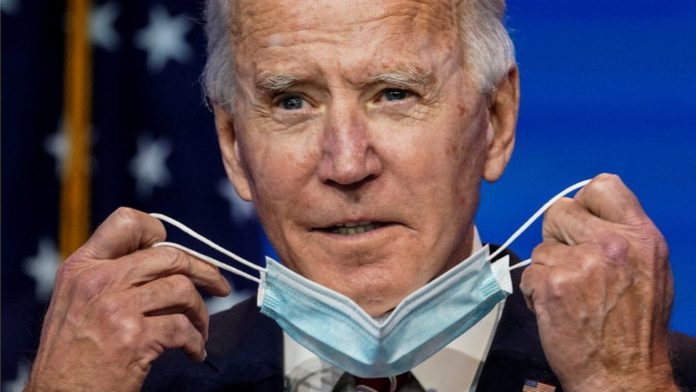US President-elect Joe Biden has said he will ask Americans to wear masks for his first 100 days in office to curtail the spread of coronavirus.
He told CNN he believed there would be a “significant reduction” in Covid-19 cases if every American wore a face covering.
Mr Biden also said he would order masks to be worn in all government buildings.
The US has recorded 14.1 million cases and 276,000 deaths from Covid-19 – the highest of any country in the world.
Mr Biden is preparing to take office as pharmaceutical giants are poised to ship millions of doses of coronavirus vaccines to the American public.
The UK on Wednesday became the first country in the world to approve the Pfizer vaccine.
What did Biden say about masks?
In his first joint interview with Vice President-elect Kamala Harris since the election, Mr Biden said: “The first day I’m inaugurated to say I’m going to ask the public for 100 days to mask. Just 100 days to mask, not forever. One hundred days.
“And I think we’ll see a significant reduction if we occur that, if that occurs with vaccinations and masking to drive down the numbers considerably.”
The first 100 days of a new presidency is symbolically important in the US and is seen as a gauge of how a president will get things done.
Constitutional experts say a US president has no legal authority to order Americans to wear masks, but Mr Biden said during the interview he and his Vice-President Kamala Harris would set an example by donning face coverings.
The president’s executive authority does cover US government property, and Mr Biden told CNN he intended to exercise such power.
“I’m going to issue a standing order that in federal buildings you have to be masked.”
He added: “Transportation, interstate transportation, you must be masked, airplanes and buses, et cetera.”
US airlines, airports and most public transit systems already require all passengers and workers to wear face coverings.
The Trump White House has rejected calls from American health experts to mandate masks in transportation as “overly restrictive”

